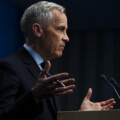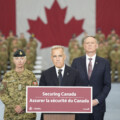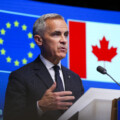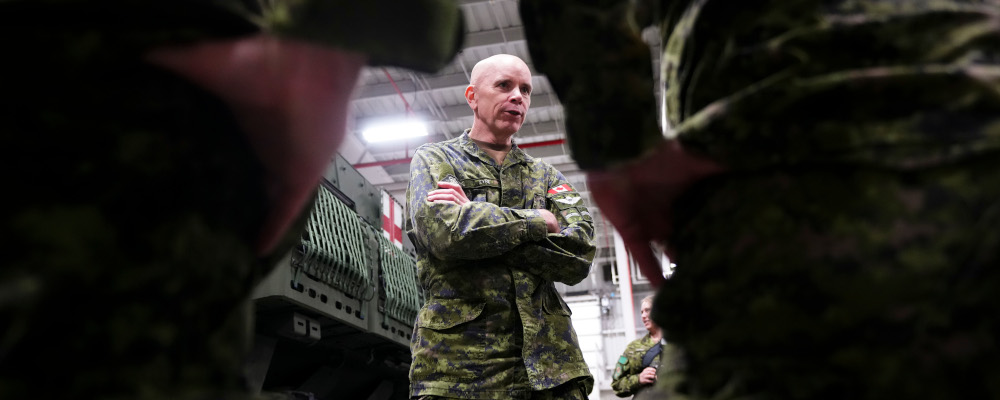As the calendar turns over to 2024, I’ve been reflecting on the year that was in Canadian security and defence. It started off with great promise. There was the potential for a new defence policy update that would address many of the government’s shortcomings with respect to defence policy and the military capabilities of the armed forces, and there was the potential for the procurement of the P-8 alongside a number of other capabilities.
Furthermore, there was hope for progress in dealing with substantiative issues around culture change and recruitment/retention. After General Eyre’s directive on reconstitution in October 2022, there was good evidence to suggest that the political leadership understood the poor material shape the Canadian Armed Forces were in and would become more discriminating as to what missions it was sent on. Relatedly the government as a whole seemed to better understand the national security environment it found itself in, especially after the publication of the Indo-Pacific Strategy in November of 2022.
Yet the close of 2023 highlights just how much this was a year of substantial disappointment for those who care about Canada’s military, defence capabilities, and its place in the world.
Rather than the beginnings of a renewal, the CAF is in a worse state and facing an even deeper hole it needs to dig out of. The delay of the defence policy update, reportedly due to its cost, as well as the shuffling out of Anita Anand, a popular minister within the department, tore out the tender shoots of hope many military members had nurtured for the military’s revival. The announced budget cutbacks of approximately $1 billion dollars over the next three years further put this to bed.
While there were some funding announcements, such as the P-8 and the Remotely Piloted Air System program, they are being layered onto a military that has haemorrhaged much of its key personnel. Many individuals, who are already overtasked, rightly wonder who will be there to integrate, operate, or sustain these new capabilities.
None of this even acknowledges the increased threat environment or the massive technological change that is affecting a CAF that desperately requires modernization. While National Defence has outlined several efforts to address this challenge, such as the pan-domain strategy, its requirement to simply survive on an austere budget means there are no resources or intellectual capacity left to implement them.
Looking back at the past year, I have been searching for historical precedents to compare it to. One has come to mind a few times: 2003.
Similar to the present, the country was faced with a number of serious security challenges: 9/11, Afghanistan, and the debate over the impending Iraq war. The 2003 CAF faced serious material and manpower challenges—what General Rick Hillier would later describe as the “decade of darkness” of the 1990s. In 2003 the military faced multiple crises simultaneously: a rust-out crisis of aging military equipment, a personnel crisis, and multiple open-ended missions. As one influential study, titled “Canada Without Armed Forces” published in 2003 suggested:
The next government will be caught up in a cascading policy entanglement initiated by the rapid collapse of Canadian Forces core assets and core capabilities. This problem will inevitably disarm foreign policy as Canada repeatedly backs away from international commitments because it lacks adequate military forces. In these circumstances, new policy initiatives aimed at ‘being useful to the United States in our own interests’ may well be derailed.
Sound familiar? While some of the direst of predictions did not immediately emerge, they were only delayed. The military received substantial investments, but a large portion of it was tied to funding the operations in Afghanistan or helping build a military that would continue similar operations. Modernization was delayed on capabilities that would help defend Canada and its allies from great power conflict, and in some cases entire capability sets were retired with no replacement forthcoming.
Looking back at the past year, one way to look at my columns is that they are chronicling the consequences of the inadequate modernization of the Canadian Armed Forces since 2003. It is a likely outcome that by 2028, the country will likely have a navy and air force that are effectively unable to provide a basic level of defence in key areas, and an army that will be unable to assist our allies with previously announced commitments.
But this does not explain why we’ve arrived at this moment. Over the years, many observers of Canadian foreign and defence policy have noted that the fundamental “problem” of the country’s national defence is that there are no “pressing” threats to its security. I’ve personally had difficulties with this perspective, as it lazily excuses present-day inaction. It ignores (or, perhaps more accurately, confirms) the perspective that it is not actually to do with the threats themselves, but Canadians’ perception of them. One book, also published in 2003, diagnosed this problem well: Andrew Cohen’s While Canada Slept. It is still worth reading today.
From 1945 to 1968, successive Canadian governments from Louis St. Laurent to Lester B. Pearson viewed international security as a critical focus. Many had fought or been a direct participant in one or both World Wars and saw the ruinous cost of inaction and unpreparedness. They had built close relationships with senior officials of all of Canada’s major allies, which allowed them to tackle problems in lock-step with each other. Canada was present at the creation of the key institutes that have provided for our economic prosperity and security. Cohen’s book lamented the decline of Canada’s principal foreign policy instruments due to neglect that occurred even as Canadians agreed that being a good international partner was in the country’s national interest.
That really hasn’t improved over the subsequent twenty years. Rather, the reality is grimmer. Like in 2003, the international system has changed radically, this time with Russia and China actively undermining the rules-based order. In the 2000s, both Paul Martin (and later Stephen Harper) understood the poor material state of the CAF and made efforts to address it. Unlike then, however, the government of today has been extremely slow to acknowledge this reality, and in some cases ignores it for their own political interests.
This has given me the most pause over the past year. Rather than acknowledge or address the real possibility of capability collapse or the broader international challenges, the political leadership has chosen to obfuscate these issues and continue policies that have already contributed to the state it currently is in. There is a preference for big, showy announcements while ignoring the much more desperately needed substantial action to fix the armed forces and foreign policy writ large.

Just this week the minister of national defence announced the deployment nine helicopters to Latvia followed by sending a handful of personnel to support the multinational effort to provide security in the Red Sea. These are token contributions that are unsustainable in aggregate for the military, yet they serve the political purpose of showing Canada doing “something.” Domestic priorities, no matter how small, will trump international ones for this government.
This was evident last July at the NATO meeting in Lithuania, which was focused on the threat posed by Russia and the war in Ukraine. Rather than focus on the topic at hand, Prime Minister Trudeau took to lecturing the assembled leaders on the threat posed by climate change, which was not well received by the gathering. Even in non-defence areas, such as with foreign interference, similar preferences are visible. The continual delay in establishing an inquiry while trying to control its scope is an example of putting parochial interests over that of the country writ large.
Considering the hope that the year started with and how it ended, it’s unlikely that much will change in 2024. Even a cursory look at the political interests of the Liberal and NDP parties (joined by their supply and confidence agreement) suggests that it is unlikely that the government will accelerate their spending on defence—rather they are more likely introduce more delays. Yet the military and other instruments of the country’s foreign and security policy will not be able to wait. Their failings need to be addressed now, or we will collectively suffer its consequences.
Recommended for You

‘Those deficits are almost surely going to rise’: Trevor Tombe on the fiscal challenges facing the Carney government

Trevor Tombe: How is Carney going to pay for his commitments? There are some tough choices ahead

Need to Know: Yahoo, Alberta! You’re doing something right

‘He’s a master of globalization in a re-nationalizing world’: Michael Ignatieff on the domestic and geopolitical challenges facing Prime Minister Carney




